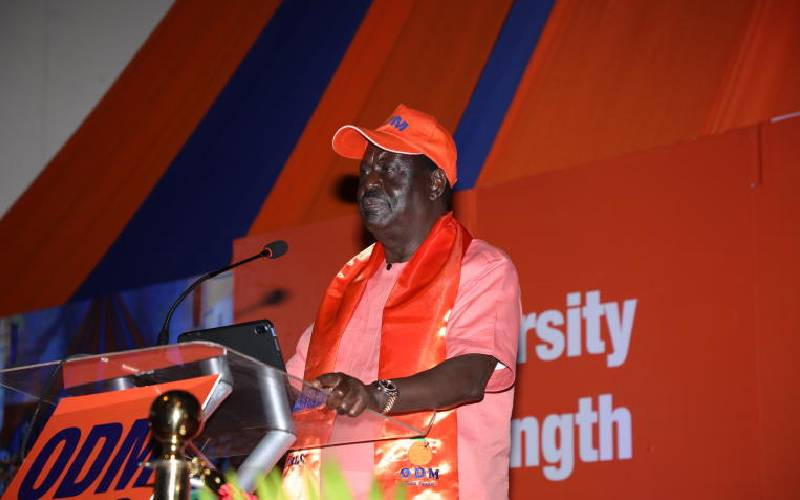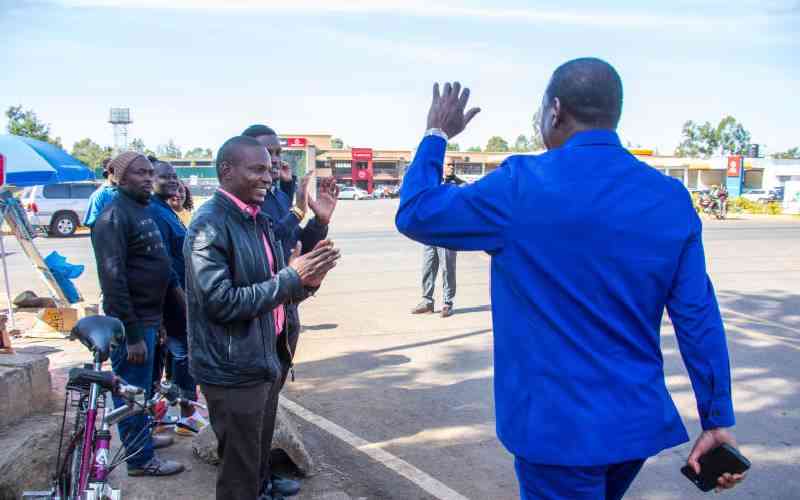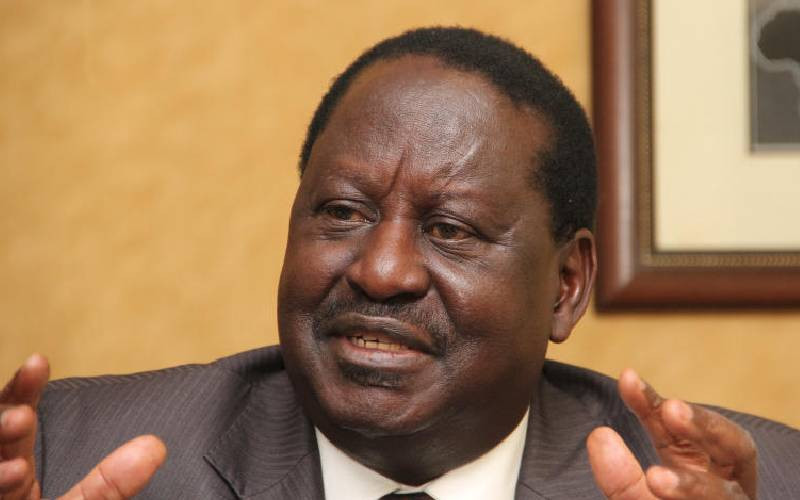The results for Homa Bay are in. And just like in Siaya, the supposed grassroots rebellion against Raila Odinga appears to have been stillborn. In the end, CORD and Raila managed to ram a political neophyte down the throats of the people of Homa Bay. CORD’s victory burnished the credentials of Raila as still the undisputed Kingmaker in Nyanza region. But it was a loss for the people of Homa Bay. It also means that Raila’s chances of becoming president in 2017 just got a little slimmer. In other words, Homa Bay was a pyrrhic victory for Raila.
Here is why: Any political analyst worth their salt will tell you that part of the reason Raila lost in the last election was because of the nomination fiasco that rocked ODM and CORD ahead of the General Election. The lack of grassroots democracy played a role in limiting turnout in crucial parts of the country. Disaffected voters felt that their vote did not matter, and stayed home. One would have hoped that for the sake of democracy, CORD would have learned from this. But apparently, they have not. Internal politics within CORD is still very much a top-down affair. Orange House calls the shots, and everyone has to toe the line or become political history.
In this regard, CORD is behaving like an incumbent party. You see, incumbent parties can have this kind of engineered elite-level democracy and survive it simply because they also tend to have a lot of resources on their side. Opposition parties, on the other hand, often depend on the passion of the masses to win elections. Their chances of winning often relies on the extent to which they can mobilise the electorate. But it is very hard to mobilise the masses when party leaders routinely force candidates on the electorate.
The habit of forcing candidates on the electorate is inimical to CORD’s future success for two key reasons. First, it deprives the coalition of crucial political talent. This is what I call the curse of test tube politicians – they are often empty vessels lacking their own agendas and often perpetuate the same mistakes of their political godfathers. Lacking independent thinking, they seldom introduce any good policy ideas that might be beneficial to the party and voters. This is part of the reason why our politicians have never been visionaries. We are a land of a few ethnic chiefs and lots of political dwarfs.
Second, top-down politics makes it impossible for party leadership to get good advice. In political science we call this “the dictator’s information dilemma.” In colloquial language it is called sycophancy. The reason is simple. A politician that depends on another for their electoral success has every incentive to tell their political godfather what they want to hear. And as we saw in 2013, such test tube politicians make for bad campaign managers. They give bad advice at every turn by never telling the truth. They lack strong connections to the same grassroots they purport to represent. And they lose elections.
Of course, the real losers in the latest by-election in Nyanza are the voters. The Senator is probably a decent man with good intentions. But in all honesty, he owes his stay in office not to the people of Homa Bay but to Orange House and Raila in particular. He is the quintessential test tube politician. His actions while in the Senate will, therefore, reflect this fact. The lesson from the by-election was plainly clear: That a politician’s track record and potential achievement doesn’t matter. What matters is the endorsement from party headquarters. What this means is that Homa Bay voters should forget hoping that their wishes and interests will be represented in Nairobi.
It is also a clear message to voters in Homa Bay - and for that matter, other CORD strongholds - that their desire for real representation in Nairobi is subordinate to the political ambitions of Raila. But what Raila fails to understand is that having subservient and dependent politicians is bad not just for voters, but also for his political future. His handpicked politicians have massively failed the electorate. They have also foreclosed on many development opportunities that could have lifted millions of Kenyans out of poverty. If he is to protect his legacy, Raila should let politicians around him free. He should let them think for themselves, and experiment with policy and ideas that will benefit Wananchi. His obsessive micro-management of local politics reflects not a strong visionary leader that most Kenyans would want him to be, but an insecure self-seeking ‘typical’ politician.
 The Standard Group Plc is a
multi-media organization with investments in media platforms spanning newspaper
print operations, television, radio broadcasting, digital and online services. The
Standard Group is recognized as a leading multi-media house in Kenya with a key
influence in matters of national and international interest.
The Standard Group Plc is a
multi-media organization with investments in media platforms spanning newspaper
print operations, television, radio broadcasting, digital and online services. The
Standard Group is recognized as a leading multi-media house in Kenya with a key
influence in matters of national and international interest.
 The Standard Group Plc is a
multi-media organization with investments in media platforms spanning newspaper
print operations, television, radio broadcasting, digital and online services. The
Standard Group is recognized as a leading multi-media house in Kenya with a key
influence in matters of national and international interest.
The Standard Group Plc is a
multi-media organization with investments in media platforms spanning newspaper
print operations, television, radio broadcasting, digital and online services. The
Standard Group is recognized as a leading multi-media house in Kenya with a key
influence in matters of national and international interest.








